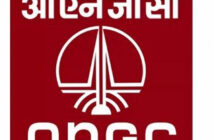For the first time in two years, Indian companies doing business in Europe have shed their pessimism and see a rebound in their business prospects in the region.
The gradual turn-around has been achieved by Indian corporate by successfully re-positioning and re-aligning their operational capabilities in one of the most demanding and organized markets in the world. Capitalising on and riding on the back of improved economic performance by number of European economies, Indian companies have been able to grow and create a niche for their products there.
Furthermore, there has been a marked rise in number of companies who have successfully been able to reduce their losses while doing business in the region, says a FICCI Survey on “Are Winds of Change Bringing Good Tidings for Indian Companies Doing Business in Europe”.
These are heartening signs for Indian corporates as despite a gradual slowdown in India-Europe trade and economic relations, the region still remains India’s largest trading partner.
The Survey notes that the current economic situation, though resulting in number of procedural and regulatory obstacles for Indian companies to expand and or do business in the continent, is still providing needed returns on the investments made.
Indian entrepreneurial zeal is looking towards tapping into the improved economic scenario in Europe to their advantage. This has resulted in ever-increasing interactions and joint ventures with the European companies. SMEs sector in India has also played a pivotal role in forging new business alliances with European companies. It has been done to get needed technologies and operational expertise to become globally competitive. The skill upgrades and development has only added due momentum to the growing synergies between Indian and European enterprises.
The survey findings reveal that the gradual economic recovery in Europe has far deeper ramifications on the business interests of Indian companies. This includes, holding on to their current level of businesses, furthering their footprint across the region, seeking a more pliant policy framework from respective European economies to ease the process of doing business there and seeking easy movement of human resources to finish the existing projects and or undertaking the new ones in the coming times.
The ongoing negotiations to sign an equitable and balanced FTA between India and the EU are also closely monitored by Indian industry. The issue of visas and movement of professionals in the EU still remains one of the most contentious concern areas for Indian companies.
In the initial years of liberalization, Indian companies focused on increasing exports, getting into joint ventures or technology transfer agreements with foreign companies to make their presence felt in global markets. In recent years, Corporate India has steadily moved towards building globally competitive enterprises. Healthy performance at home, the desire to venture abroad coupled with liberal policies on outward investments, served as a catalyst to establish a footprint globally and expedited the process of Indian companies entering foreign markets through the acquisition route.
EU clearly represents a large consumer base (close to 500 million potential consumers) if the entire bloc of 27 countries is considered to be a single market. It’s economic, trade and investment policies generally welcome foreign investment traditionally viewing it as a means to promote employment and capital formation
Other attractions of the EU include well developed capital markets, political and social stability, established and transparent legal systems to name a few.
The following are the highlights of the Survey findings:
- With number of major European economies namely Germany and France apart from Greece, Spain and Italy, showing signs of economic consolidation and growth in recent months, Indian companies have overwhelmingly expressed optimism that the worst is over for them while engaging the region commercially.
- From 2015 when 75% of Indian companies surveyed had responded that the ongoing crisis had resulted in their business prospects in the region being adversely impacted, this year 25% of the surveyed companies expressed concerns about their business prospects taking a hit due to current economic scenario in Europe.
- Over 65% of companies surveyed noted that even when the markets were slow in registering increased domestic demand, they have been able to register growth in their product(s) category.
- Most significantly 61% of the surveyed companies who reported increase in their business prospects, their losses have come down from 20% in 2015 to less than5% this year. 18% respondents reported an increase of 2-5% in their businesses.
- Half of the surveyed companies expected the current economic situation would improve in the coming 1-2 years’ time.
- Encouragingly, 30% respondents expressed optimism that the economic situation in the European Union would begin to look up in a year’s time. Even some of those companies who have seen their margins decline in the last two years, have shown optimism about the future business prospects for their product category in next one year’s time.
- To keep their balance sheets stable, over 57% of the Indian companies surveyed have already begun to diversify their markets within and outside Europe. This is in stark contrast to 2015 survey as over 40% of these companies have initiated efforts to make inroads into Central and East European markets. 60% of these companies are primarily focusing on greener pastures in African countries, Middle East, South Asia and even in North America.
- Over 20% respondents have pointed out that during the current economic turmoil, rather than facilitating foreign investments and businesses, the respective European Governments have made its processes more stringent in obtaining and renewing long-term visas, work permits, family and dependent visas and overall ease of doing business in the region. Of these, there was unanimity that getting a business visa remained the most worrying issue for them to effectively engage the European economies.
- 10% of the respondents suggested that Indian government could favorably look at providing subsidies and lower duties for promoting India-EU trade.
As the survey indicates, despite the number of policy and regulatory impediments, India’s outbound investments in the EU may see smaller deals but the activity will continue. Numbers of Indian companies are viewing the current economic crisis as an opportunity to enhance their investments.
To maximize their benefits and to alleviate their business losses in terms of reduced demands in European markets, Indian manufacturers are aggressively pursuing new business plans. This includes increased imports of high-end machinery and technology from Europe due to highly competitive prices being offered by European exporters. This could have long-term spin-offs for Indian industry in terms of added capacities and reduced capital expenditures.
As the economic fundamentals for Indian companies to stay invested in the country(s) of their business interest are sound, they are willing to stay put and not leave their European businesses for better avenues in other parts of the globe just as yet.





